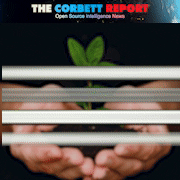Podcast: Play in new window | Download | Embed
[CLICK HERE to continue watching the full video on BoilingFrogsPost.com]
by James Corbett
BoilingFrogsPost.com
February 26, 2013
It’s funny how quickly perceptions can change on the global stage. Just a few years ago, Argentina was being hailed as a remarkable tale of success snatched from the jaws of defeat. After suffering an economic crisis in 1999-2002 that saw widespread unemployment and riots, the fall of the government, and a national default on foreign debt, analysts in recent years have been pontificating on the re-stabilization of the Argentinian economy. But it appears they spoke too soon.
In the past few months the wheels have come off the illusion of Argentina’s so-called “recovery.” In 2007, President Kirchner replaced the staff of INDEC, the nation’s statistics office, with political appointees. Since then, the official Argentinian government figures have shown a steady inflation rate of about 10%, while independent analysts show the actual inflation rate in Argentina was closer to 30% last year. To put the numbers in perspective, INDEC claims an Argentinian can eat on six pesos a day. Six pesos is enough to buy a pack of chewing gum, but not much else. Even a can of soda costs eight pesos in Buenos Aires.
As a result, on February 1st, Argentina became the first nation in history to be censured by the IMF. The very next business day, Kirchner’s government imposed a two-month price freeze on supermarket products, causing a buying frenzy as Argentinians rushed to stock up on supplies before the inevitable hyperinflationary spiral kicks in. This is nothing new to Argentinians, who have experienced monetary crisis on a regular basis since at least the 1970s, including a bout of hyperinflation ending in 1992 that saw the peso decrease to one / one-hundred-trillionths of its pre-inflation value.
The IMF has given the country until September to bring its statistics up to international standards or face expulsion from the world body. Ironically, this will be welcome news to Argentinians, who have long understood that it was the international financial elite at the IMF and in the so-called Washington consensus who put the country on this path of economic collapse in the first place. The roots of the current crisis go back at least as far as the US-backed military coup in the 1970s which “disappeared” an entire generation of political activists and instituted a bankster-friendly regime that paved the way for an era of neoliberal reforms and cooperation with the IMF.
In 2011, I had the chance to talk to Michel Chossudovsky of the Centre for Research on Globalization about his time in Argentina during the coup in the 1970s, and where we can locate the real roots of the country’s ongoing economic crisis.
To those who would doubt that the Kirchner regime is just another link in this chain of tyranny, in addition to dutifully repaying its IMF loans since the last collapse, the Argentinian government is now putting its faith in the US court system to litigate their claims against foreign debt holders. The case, brought by investors in the country’s defaulted debt, is now being heard in the US Court of Appeals in New York and will determine whether the government will have to pay “vulture” investors who bought up the country’s defaulted debt at the same rate as those who took a debt exchange deal offered in previous years.
Whatever the answer to Argentina’s current economic woes may be, it would be safe to conclude that they do not include pandering to the IMF or the US Court of Appeals. To their credit, the Argentinian people are increasingly cognizant of this fact and taking steps to circumvent the systems of fear and control that have kept them trapped in this economic collapse for so long.
Once again Argentina finds itself on the brink of economic collapse. This collapse is the inevitable, predictable end result of both the neoliberal policies imposed on the country in decades past and the irrational, politically-motivated lies spun by the government in reaction to those policies.
The rock-and-hard-place nature of Argentina’s current collapse looks intractable from the outside, but just as the people in Greece have set up independent, alternative currency systems and markets to help circumvent the bankster-imposed Euro crisis, so too are Argentinians discovering the utility of bypassing the macroeconomic wrangling altogether to facilitate the local trade that will see them through whatever monetary collapse might be coming.
People around the world who are concerned about the slow motion global fiat monetary collapse that is unfolding in the latest round of currency wars might take note: the answer, as always, comes not from on high, but from cooperation with those around us.








0 Comments
Trackbacks/Pingbacks